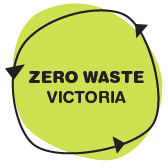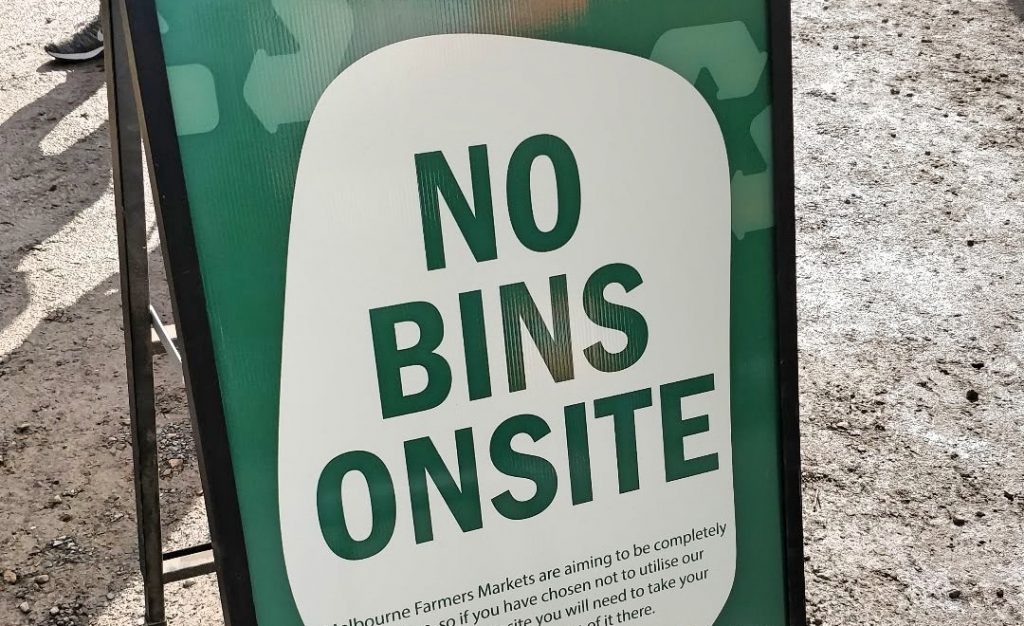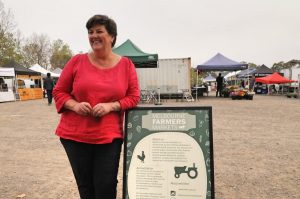
Melbourne Farmers Markets (MFM) has gone a few steps beyond no plastic bags and no single-use coffee cups, implementing numerous zero waste initiatives with the aim of being completely waste free.
The first time I visited one of its markets, Alphington Farmers Market, I packed in all my reusables – my reusable coffee cup and my reusable container and cutlery – and I was pleasantly surprised that I didn’t need to get any of them dirty as all the food vendors provided ceramic reusable plates, bowls and cups and steel cutlery and there was a wash-up station where they could be cleaned and dried, ready for use by the next person thanks to MFM’s Wash Against Waste Station.
It is trialling no longer providing any rubbish bins on site at the market, with a sign at the entrance proudly proclaiming, “No Bins Onsite” and explaining its waste free goal and that any waste created will have to be taken home and disposed of there.
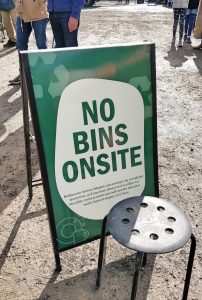
This is made easy by the fact that Boomerang Bags are provided for use if you’ve forgotten your own and food vendors don’t provide single-use plates, bowls, cups, or cutlery. In addition, I’ve found that most stall holders are happy to take back and reuse any packaging if any is used, for instance I take back the glass jar the jam I buy comes in for reuse and give back the plastic box berries come in and I’ve seen others returning their netted bags for a refill of oranges.
I had a chat with Miranda Sharp, managing director of MFM, about these incredible waste reducing initiatives to find out how MFM went about implementing them and if there are any learnings that can be passed on to others wanting to do something similar.
What made Melbourne Farmers Market decide to go beyond the low hanging fruit of no plastic bags or single-use coffee cups?
We are not afraid to be early adopters because we have an incredibly supportive ‘captive audience’ who have shown they are prepared to make an effort for good sustainable outcomes. We believe very strongly in walking the talk so if we want to make positive changes to the way we live our lives, we need to just start doing it!
There are no longer any bins onsite (apart from composting bins) at Alphington Farmers Market. I think this is a fantastic way for people to be made more aware of the waste they create and to force them to consider how much waste they create. Was this your intention and how is this going?
Yep! It’s another example of trialling a strong message, and this one is about taking responsibility for what you produce. If it’s rubbish, take it with you! This has only been rolled out at Alphington so far but we’d love to see it happen at all the sites we run our markets at in future.
What other waste reduction initiatives have you implemented at your markets and are these across all of your markets?
2006 was when we first went plastic bag free, so this has been in place for years across all markets. We have a rubber band return, boomerang bags and wash up stations at all markets.
Our Wash Against Waste Station is a bare bones, back to basics way of dealing with waste. Why
chuck something in the bin when getting some dishwashing liquid and hot water is all it takes to
stop that piece of plastic existing forever in landfill?

We have also tackled food packaging and work with stallholders to ensure they are using the minimum allowable (some is mandatory for health regulations).
In addition, we have held waste minimisation workshops in collaboration with Fair Food Challenge, Youth Food Movement and Leftover Lovers with the support from Sustainability Victoria and The University of Melbourne through a Love Food Hate Waste Victoria grant.
How did Melbourne Farmers Markets begin implementing its waste free initiatives? Were the changes introduced slowly step by step, market by market or all in one go? Was there a consultation process with stall holders?
When implementing these zero waste initiatives, we introduced them through lots of positive messaging to stallholders, public, and media. We ensured that we had lots of lead-time to prepare and that we had solutions like cloth bags and cardboard boxes to replace the plastic ones and contacts for suppliers of better alternatives, which were bought together to reduce costs.
Have these changes caused any hard or extra work for market managers and staff, for instance the wash-up station?
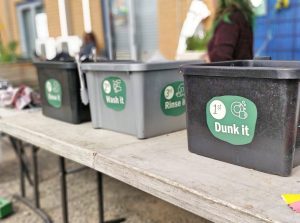
Yes, a lot and we simply can’t justify it financially, but it’s too important to go backwards!
The sullage from the disposal of the dirty water is one issue caused by the wash-up station, for instance.
Another issue that is brought up by reducing waste is compliance to the health regulations around compliance to required hygiene practices.
How were customers informed about the changes and how has uptake been? Were there any teething issues?
They were informed via social media around market days, signage on site and by us just doing it.
Customer uptake has been extremely positive, but there are still teething issues because we have had to absorb all the costs of the staff and infrastructure required, so we still haven’t got it right.
Similarly, have there been any issues or complaints from stall holders? How have they found adapting to the changes?
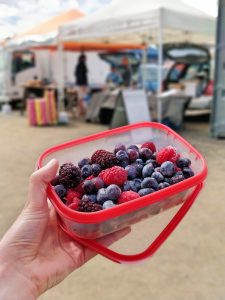
Mostly, no, but there have been some challenges for stallholders who can’t reduce waste due to health regulations and some are very set in their ways.
The response from the public is very powerful though and some of the least likely have come around.
What advice would you give to other markets and businesses wanting to implement similar zero waste initiatives?
Go for it but don’t do it half-heartedly!
Do you think Melbourne Farmers Markets zero waste initiatives have benefited the markets and stall holders in some way? If so how?
Yes, we feel great about it and constantly get fantastic feedback for taking it on.
Finally, do you have any further sustainability initiatives you are planning to implement in the future?
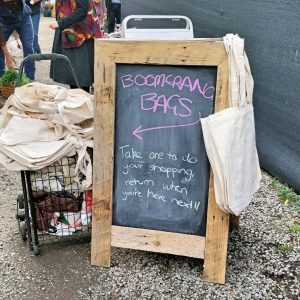
Our current plans include further rolling out Melbourne Food Hub and the collective impact projects to create a local food system and circular economy on site and a community kitchen fitted out with salvaged, second-hand and reconditioned equipment. This kitchen will be used for education and the diversion of wasted and surplus produce into a value-added, saleable product.
Other future initiatives in the pipeline are urban farming education, a community compost hub in conjunction with Reground, a fully kitted out wash up trailer for events, implementing solar battery storage on site together with Village Power, etc etc!
I love Miranda’s advice of: “go for it but don’t do it half-heartedly!” and her acknowledgement that sometimes you do have to take a financial hit, but it is too important not to do it.
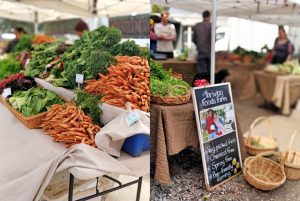
And I hope her experience and the initiatives implemented by Melbourne Farmers Markets inspires everyone to start having a look at the business they run or work for to determine where better alternatives could be implemented and to just go for it because it is too important not to.
You can find your closest Melbourne Farmers Market here.
